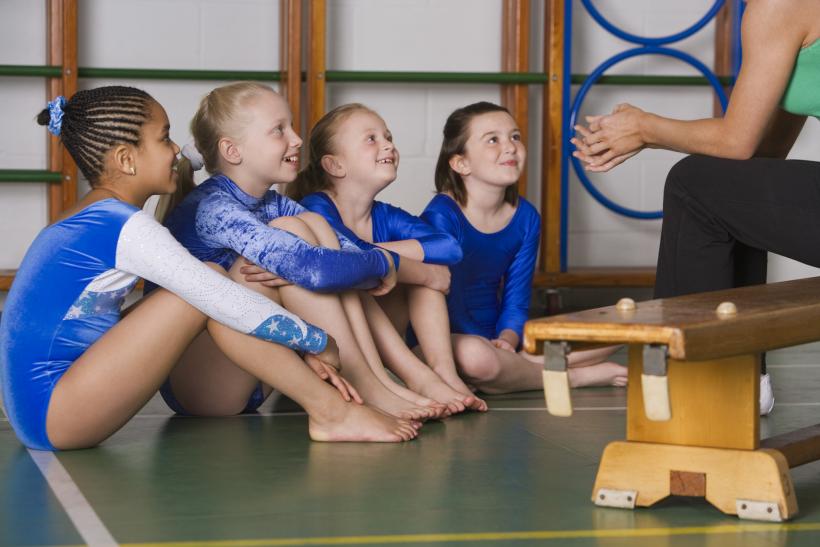
Here are some strategies for protecting your children from becoming the victims of their trusted leaders.
Stranger Danger was born in the 1980s. You couldn’t miss it; it was everywhere. I would know, I was a kid then, trained to be terrified of any person I didn’t know. It’s 10 o’clock Do You Know Where Your Kids Are?, missing kids on milk cartons. No, you can’t have your name on your backpack or clothing. Don’t take anything from strangers. Don’t get into any strange cars. Don’t even speak to strangers. Razor blades in candy. Code words for anyone not your parents picking you up from school — “What’s the code word? PICKLE. Ok. I’ll get in your car.”
When I was in sixth grade, there was man driving by my elementary school in a panel van; the school called the police.
It was probably all a little much.
They made us believe that if you stepped outside alone you’d be abducted and murdered — or, at the very least made into a child-bride. They made us believe that millions of kids were missing or abducted. In truth, there weren’t that many child abductions. There weren’t millions of kids being given puppies as a lure to get into a care.
The dangers we were facing were far more covert.
They were in our gyms, at our soccer games, in the rectory at church; they were everywhere we didn’t think about. The strangers weren’t nearly as insidious as the people we saw every day.
We saw this most recently as many members of the USA Gymnastics team came forward with harrowing stories of more than 150 cases of abuse by team physician, Larry Nassar.
And yet, when cases likes Nassar’s come up, and they seem to pretty often (studies suggest about 7% of athletes have experienced abuse at the hand of a coach), we are still surprised.
You Might Also Like: Raising Teens Doesn't Have To Be A Nightmare
So how do you keep your kids safe?
Here are some strategies for protecting your children from becoming the victims of their trusted leaders:
1. Make sure and talk about consent from the time they are small.
And I’m talking babies.
Start then. Understanding what consent means will send a clear message to kids of what is appropriate/inappropriate behavior.
2. Tell your kids that they can come to you in any situation they aren’t comfortable.
And tell them they will never be in trouble, regardless of what anyone says. This is the famous line right? “Don’t tell your mom (or dad or anyone) or you’ll get in trouble.” Screw that bullshit. Tell your kids they are always 100% safe with you and anyone who tells them they will get in trouble is going to get in trouble.
(This also works well when it’s time to talk about sex and drugs.)
3. Tell them that their success in sports or activities only depends on how hard they work, not on any other person.
There is no coach or leader that can make success for them. This way, when someone claims they can “help,” your kids know that's a load of predatorial crap. Abusers will try anything to get what they want.
4. Talk to your kids about abuse.
I mean just tell them flat out, some kids are hurt by adults. Don't be scared to tell them the truth when their lives are at stake. "I don’t want that to be you hurt, so even though we trust Mr. ______, I want to talk to you about how to be safe."
It’s fine to say most people are good and kind but not all of them.
5. Don’t let coaches drive your kids around.
DUH. But seriously, if a coach insists on giving a ride? Just go ahead and figure they are up to no good. Better safe than sorry.
There is no reason any child needs to be alone with a coach or leader. There just is not. If they need to practice, go to a public park. A gym should never be empty. Never.
6. Remind your kids that if any other kids come to them with reports of abuse, it’s ok to tell.
Kids often protect each other’s secrets. It’s ok to tell them to betray the trust of a friend if it helps that child to stay safe.
7. Give them alternative options to talking to you.
They might not come to you because they are simply too ashamed. Tell them ahead of time, “If anything ever happens to you that you don’t feel comfortable talking to me about, you can go to _______ or _______ or _______.”
8. Talk to the coaches.
These are YOUR KIDS. If something seems fishy to you, even if you just want to set a precedent — “to keep our kids safe we don’t allow them to be alone with any adults” — tell the adults in charge. If they don’t like that, then they don’t have your kids’ best interest at heart.
Most coaches and leaders aren’t spending their time with your kids for nefarious purposes, but again, better safe than sorry. It's not the strangers we need to be watching. Trust your gut. Listen to your inner mama bear. Obey your intuition; it's telling you something.
Related:
-
5 Things Teens Won’t Tell You About Sex, Drugs, Other Scary Stuff
-
While We’re Raising Awareness About Sexual Assault, Let’s Raise Better Human Beings Too
-
Teaching Boys About Consent Needs To Start Earlier Than You Think







